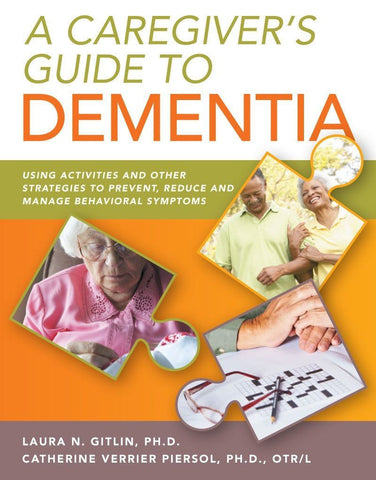A Caregiver's Guide to Dementia: Using Activites and Other Strategies to Prevent, Reduce and Manage Behavioral Symptoms
“Mom has nothing to do—I’m concerned about her quality of life.”
“My husband gets agitated when I need to leave the house—I don’t know what to do.”
“My father keeps asking the same questions over and over.”
These are some of the common challenges encountered by individuals and families who are caring for a parent, spouse or close relative with dementia. This easy-to-use, practical guide is designed to help at-home caregivers navigate these daily challenges. Although there is no cure for dementia or its many behavioral symptoms, there are clear and proven strategies that can be used to enhance the quality of life for persons with dementia—strategies that can make a real difference for their families.
A Caregiver’s Guide to Dementia explores the use of activities and other techniques to prevent, reduce and manage the behavioral symptoms of dementia. Separate sections cover daily activities, effective communication, home safety and difficult behaviors, with explicit strategies to handle agitation, repetitive questions, acting out, wandering, restlessness, hoarding, resistance to care, incontinence, destructiveness, sexually and socially inappropriate acts at home and in public, aggressiveness, and depression. Worksheets are provided to help caregivers customize the strategies that work best for them.
The strategies featured in this guide have been used by the authors in their research and reflect approaches and techniques that families have found to be most helpful.
About the Authors
Laura N. Gitlin, Ph.D. is a professor in the Schools of Nursing and Medicine and director of the Center for Innovative Care in Aging at Johns Hopkins University.
Catherine Verrier Piersol, Ph.D., OTR/L is an associate professor of Occupational Therapy and Clinical Director of Jefferson Elder Care at Thomas Jefferson University.






